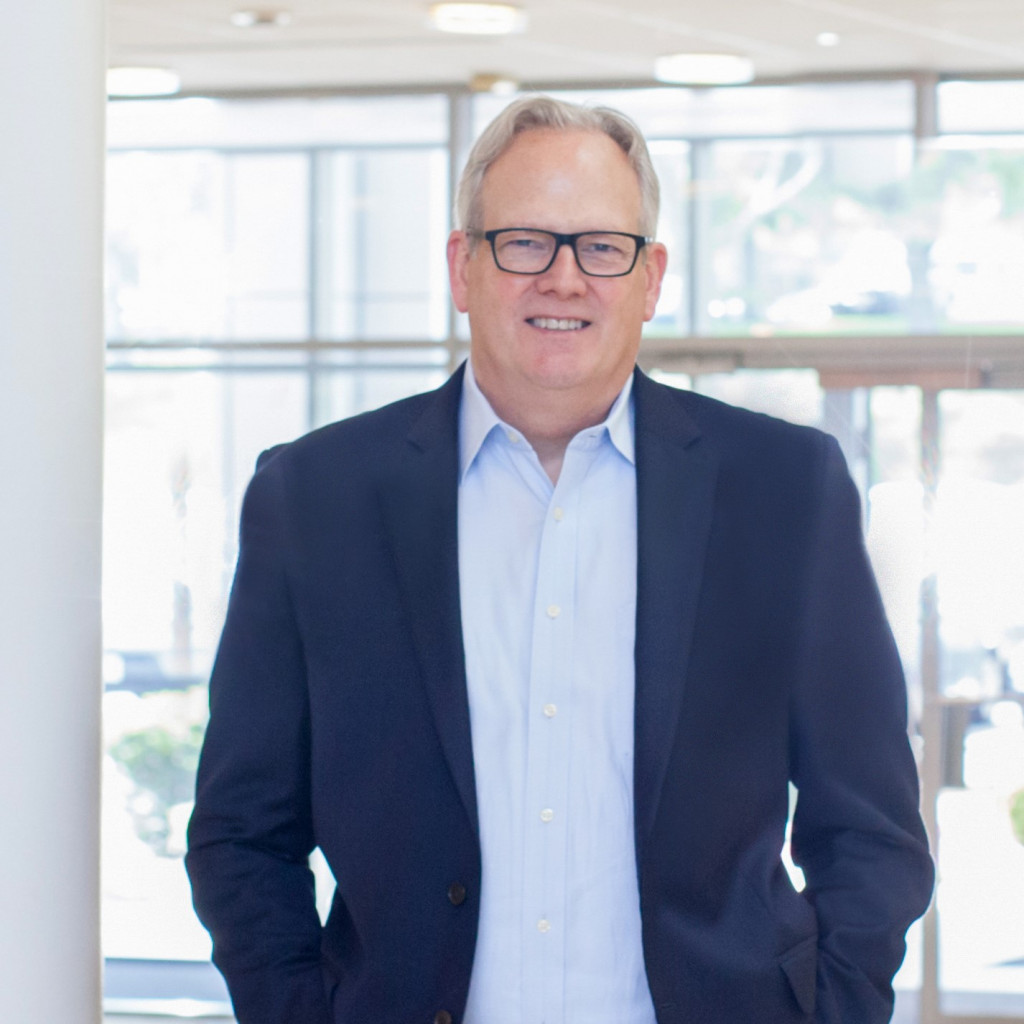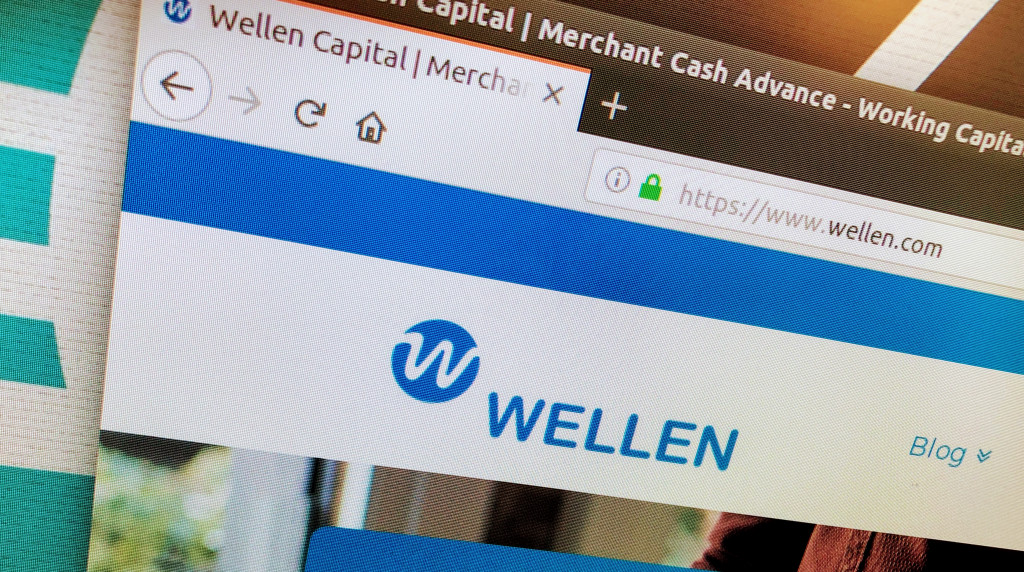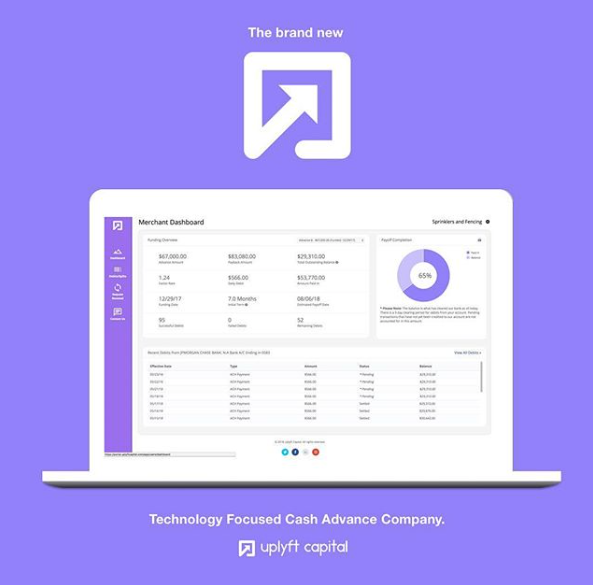Study Reveals Positivity and Concerns of Small Business Owners
June 5, 2018According to a survey conducted by SmartBiz Loans and released today, almost 57 percent of small business owners said their outlook on business growth over the next 12 months was “fairly positive” or “positive.” And 35 percent of respondents reported that the new tax plan has already caused them to make changes in their business, with ten percent reporting that they are actively investing in new equipment or staffing.
“This positivity points to the resiliency of small business owners,” said CEO of SmartBiz Evan Singer. “They know circumstances are changing, and they’re adapting as needed.”
As for concerns, according to the survey, 31 percent of respondents said that securing lower cost financing was a priority concern. Twenty-two percent of small business owners “agree” or “strongly agree” that access to credit has become easier in the last few years, however 49 percent of small business owners “agree” or “strongly agree” that the cost of credit has increased.
Regarding non-credit related concerns, 53 percent of small business owners named the cost of providing health insurance for employees and a key business consideration. And 49 percent said that finding and hiring quality employees was a top concern.
Nine out of 10 small business owners said they value experience over education in new hires, while 31 percent said they were willing to hire candidates who lack some qualifications and train them. In what the report described as a “difficult hiring environment,” in order to retain employees, 51 percent of owners said they were offering more flexible work arrangements and 33 percent said they were increasing wages.
LeaseQ Partners with SEFA
June 5, 2018 LeaseQ, an online marketplace for equipment financing, announced a partnership yesterday with SEFA, a non-profit association of leading supply and equipment dealers in the food industry.
LeaseQ, an online marketplace for equipment financing, announced a partnership yesterday with SEFA, a non-profit association of leading supply and equipment dealers in the food industry.
“SEFA is a group of 62 companies that work together like a big family to add value wherever they can,” said Vernon Tirey, founder and CEO of LeaseQ. “Unlike many buying groups, value-add is very important to them [and] that’s why we’re so excited to be part of the team.”
Tirey expressed enthusiasm about working with SEFA to develop financing solutions to meet the individual needs of each of SEFA’s members. LeaseQ has three kinds of clients: businesses seeking equipment financing, equipment dealers (like members of SEFA), and funding companies. LeaseQ earns money by charging a processing fee to funding companies for financing deals, Tirey told deBanked. But the funding company rolls LeaseQ’s fee into its fee to the borrower, so the fee is ultimately paid by the borrower. Typically, for a five-year lease, LeaseQ’s fee is under two percent.
Aside from the benefit of LeaseQ getting new business from SEFA members, SEFA members will benefit by receiving certain perks from LeaseQ . For instance, Tirey said that LeaseQ has introduced a kiosk program for SEFA members where, among other offerings, SEFA members will be able to receive instant funding for transactions under $15,000.
LeaseQ facilitates equipment finance in over 20 different vertical markets, including agriculture, construction, oil and gas, medical devices.
Founded in 2012, the company is based in Burlington, MA, and employs 27 people.
How Gibraltar Capital Advance Became Wellen Capital
June 4, 2018 Gibraltar Capital Advance announced today that it has changed its name to Wellen Capital. The company had been a sister company of Gibraltar Business Capital, but since that company was acquired in March of this year, Gibraltar Capital Advance has operated independently.
Gibraltar Capital Advance announced today that it has changed its name to Wellen Capital. The company had been a sister company of Gibraltar Business Capital, but since that company was acquired in March of this year, Gibraltar Capital Advance has operated independently.
“The Gibraltar name has been well-regarded as a leader in the alternative finance market for many years,” said Jim Teppen, President of what is now known as Wellen Capital. “We entrust it to our former colleagues at Gibraltar Business Capital, knowing they’ll successfully carry the brand’s tradition forward.”
Wellen is no one’s surname at the company, according to Chief Revenue Officer Steve O’Connor.
“One of the things that makes us unique in the capital advance space is that we’re from Chicago,” O’Connor said. “We’re a midwestern company, and the way that we crafted this name had a lot to do with words and phrases and images that were midwestern, even though it’s not obvious.”
O’Connor also noted that Wellen is easy to say and easy to type. In addition to the name change, the company also announced today the WellenScore Application Scoring System, Wellen’s proprietary, data-driven system for evaluating applications.
O’Connor acknowledged that alternative finance companies have been using algorithms to make funding decisions for years, with varying degrees of success.
“Our approach was always to gather enough data first to make sure that we had enough information to inform a data enabled decisioning model,” O’Connor said of Wellen, which was founded in 2012. “And that’s not the kind of thing you can just do overnight.”
The company has been using this system now for more than six months. This doesn’t mean that Wellen now relies exclusively on computers to make funding decisions.
“Our process leverages automation and data-enabled decisions, but isn’t just a ‘black box,’” said Wellen Chief Operating Officer Ed Job. “Good funding decisions are made by working with our sales partners to gather needed data and decide how to best structure a capital solution for our customers.”
Wellen, which provides merchant cash advance exclusively, is based in Chicago and employs 30 people.
$15 Million Facility Allows for Growth of Breakout Capital Factoring Program
June 1, 2018
Breakout Capital announced that it obtained a $15 million facility on Wednesday, with a fund managed by Medalist Partners. While the facility is not earmarked for any single product, Chief Marketing and Sales Officer James Mendelsohn told deBanked that the facility will certainly help fund the company’s relatively new and popular FactorAdvantage product.
“With the [FactorAdvantage] program, we work in concert with the factor and the small business to maximize the small business’s access to capital,” Mendelsohn said. “We work with factors to enable a factoring relationship with a small business.”
Introduced in January of this year, Mendelsohn said that the FactorAdvantage program generally works in one of two ways, depending on the client. If the client is new to a factoring company and the client has a tax lien or something that prevents the factor from working with that client, FactorAdvantage will come in and help finance a consolidation or whatever it is to prepare the client to work with the factor.
The other common use of the FactorAdvantage product is for existing clients of the factoring company that want access to more capital. Factors will sometimes provide additional capital in what is called an overadvance. But when the factor is not able to, or not able to provide enough capital, FactorAdvantage will provide that additional capital.
“The access to more capital [will allow] us to grow,” Mendelsohn said. “We’ve had February, March, April and now May – each month, we’ve broken our own record for origination volume. We want to break that record every month going forward, so this [facility] will help us have plenty of dry powder.”
Mendelsohn also said that a boon of the FactorAdvantage program is that “the tickets are much bigger.” The maximum financing on Breakout Capital’s other products is $250,000, while the maximum for the FactorAdvantage product is $500,000. Breakout Capital was founded in May of 2015 and also provides Business loans, SBA loans, Lines of credit, Equipment leasing and Merchant cash advance, among other financing products. The bulk of the company’s volume comes from their distribution partners, including brokers, ISOs, and more recently, factoring companies.
Based in McLean, VA, Breakout Capital employs almost 50 people.
Report Demonstrates How Online Lenders Benefit Economy
May 31, 2018 A report on “The Economic Benefits of Online Lending to Small Businesses and the U.S. Economy” was released yesterday, using data from 180,000 U.S. small businesses that represented nearly $10 billion in funding from 2015 to 2017.
A report on “The Economic Benefits of Online Lending to Small Businesses and the U.S. Economy” was released yesterday, using data from 180,000 U.S. small businesses that represented nearly $10 billion in funding from 2015 to 2017.
The report used data from five online lenders, including OnDeck, Kabbage and Lendio, and was sponsored by the Electronic Transactions Association (ETA), the Small Business Finance Association (SBFA) and the Innovative Lending Platform Association. The report was researched by three economists at NDP Analytics, an independent research firm.
One of the key findings was that the ten billion dollars funded from 2015 to 2017 by five of the top alternative small business lenders generated $37.7 billion in gross output and created 358,911 jobs and $12.6 billion in wages.
“I think the most important takeaway from this study is that small businesses are benefiting from a wide variety of choices in lending products,” said Jason Oxman, CEO of the ETA. “And, in particular, the online small business lenders have provided really a remarkable amount of working capital to small businesses in this country.”
Oxman told deBanked that he was surprised to learn from the report the percentage of borrowers that operate extremely small businesses. According to the report, 24 percent of online business borrowers operate businesses that have less than $100,000 in annual sales. And two-thirds of online business borrowers had less than $500,000 in annual sales.
“These are clearly small businesses,” Oxman said. “These are companies that obviously have capital needs and are getting those needs met by online small business lenders.”
New York State was a focus of part of the research. According to a press release for the report, data extracted from it indicated that “overall, the small business loans provided by online lenders [from 2015 to 2017] generated $2.5 billion in gross output and created 20,154 jobs with over $795 million in wages” for communities in New York State.
“We [organized the report] with New York in mind,” said Steve Denis, Executive Director at the SBFA. “We wanted to send a message to show how much of an impact the online lending industry had on the state.”
Other interesting data from the report include:
— 75 percent of U.S. businesses have less than 10 employees.
— 22 percent of small business owners use their personal savings to expand
— Online lenders offer loans to companies in all stages of their life cycle and the distribution of company age is relatively uniform.
“[Alternative small business lending] is creating a lot of economic activity,” Denis said. “We’re helping to create jobs, and we need to protect this tool. It’s a valuable resource for businesses…and this [report] demonstrates how important it is to the economy.”
Uplyft Updates Logo and More
May 31, 2018 Uplyft Capital announced the launch of its new branding yesterday, including a new logo and website.
Uplyft Capital announced the launch of its new branding yesterday, including a new logo and website.
“We were looking for a sleek, stylish icon that would have brand recognition in the industry as simple and fun, but also uplifting,” said CEO Michael Massa.
The rising purple arrow represents growth for small businesses, “looking to get out of the current box they are in,” according to the press release.
“All of our online portals have been revamped and redesigned,” Massa said, “our client, investor and partner portals.”
Massa prides the company he founded in 2012 for its innovation. Uplyft, which provides cash advance exclusively, uses Artificial Intelligence for underwriting and signing up new ISO partners electronically.
“We need to evolve in order to keep up with demand,” he told deBanked.
Uplyft has a direct sales team of about 25 people and roughly 500 ISO sales partners, according to Massa. Headquartered in Miami, the company employs about 45 people altogether with a small office of three people in New York.
IOU Planning for 25%-30% Originations Growth
May 29, 2018IOU Financial CEO Phil Marleau spoke confidently this afternoon on a public conference call to discuss the company’s first quarter performance. The company had a net income of $797,198 from the start of the year to March 31, which is notable because it produced a $995,085 loss during the same period last year.
On the call, Marleau said that the company plans to increase loan originations next year by 25 to 30 percent.
An analyst at TD Wealth asked if the company’s plan for a 25 to 30 percent increase in loan originations should produce a similar increase in earnings.
“We’re working on getting our numbers back on a growth trajectory,” Marleau said. [To do this…] we may need to increase marketing spend in order to increase the direct channel and the referral channel.”
Marleau explained that IOU Financial has three channels: the wholesale sales channel, which is responsible for the bulk of its business, the direct channel, which is driven by marketing, and the referral channel, which involves strategic partnerships with associations, payment processors, suppliers to small businesses and others. The company makes business loans of up to $300,000.
“We’re not going to lose sight of the bottom line,” Marleau said. “We’re not going to grow at the expense of profit.”
Another question came in asking what the status was on the company’s strategy of taking aggressive legal action against merchants that default on loans. President and Chief Operations Officer Robert Gloer answered this question by noting that once a lawsuit is filed against a merchant, it generally takes about a year for any money to be recovered. But the company has recovered money from defaults.
“We have started to see recoveries and we see that as a huge success,” Gloer said.
Another question dealt broadly with alternative financing in Canada as opposed to elsewhere, like the US. Marleau said that compared to the US, there is a lot less competition in Canada and that there are higher margins and usually fewer defaults.
IOU Financial is headquartered in Montreal and has an office in Kennesaw, GA.
GreenSky Lists on the Nasdaq
May 25, 2018 Yesterday, GreenSky announced its initial public offering of 38,000,000 shares of Class A common stock at $23.00 per share. The shares of common stock now trade on the NASDAQ under the symbol “GSKY” and are valued at $24.77, as of the close of trading today.
Yesterday, GreenSky announced its initial public offering of 38,000,000 shares of Class A common stock at $23.00 per share. The shares of common stock now trade on the NASDAQ under the symbol “GSKY” and are valued at $24.77, as of the close of trading today.
GreenSky facilitates point-of-sale financing that enables over 12,000 merchants to offer easy payment options to over 1.7 million consumer customers. Valued at $4.4 billion, according to Trefis, an independent financial data company, it is among the largest fintech companies in the lending space. But it is not a lender. Instead, it facilitates loans through its proprietary technology for prime and super prime borrowers to make high priced purchases. GreenSky’s merchant partners include home improvement businesses and clinics that offer costly elective medical procedures. The average FICO score of a GreenSky borrower is 760.
“Our roadmap to capture growth opportunities and deliver profitability to our shareholders is clear: continue to grow our current business, expand our network of merchants, enter new verticals, and broaden the solutions we offer to both businesses and consumers,” said GreenSky CEO David Zalik following the company’s IPO.
Zalik founded the company in 2006 and has kept a pretty low profile until the growth of GreenSky made it difficult for him to remain obscure. According to a September 2016 interview with Bloomberg, Zalik, whose company was then valued at $3.6 billion, said he had never given an interview before.
His personal story is as impressive as his company’s. He came to the U.S. from Israel when he was four and grew up in Alabama. Because of remarkably high standardized test scores, he started taking classes at Auburn University (in Auburn, AL) when he was 12, according to the same 2016 Bloomberg story. He sold his first company for a few million dollars when he was 22, at which point he moved to Atlanta.
In 2016, Zalik was the winner of the Ernst & Young Entrepreneur of the Year award for Financial Services. In his acceptance speech he said:
“My family and I came to this country in 1978 with two suitcases, and the dream of America. I am the child of two generations of refugees, and a proud American. This country has given my family everything. Freedom of opportunity [and] freedom from fear.”
GreenSky is based in Atlanta and employs more than 600 people. The company was unable to provide comments in time for this story’s publication.






























